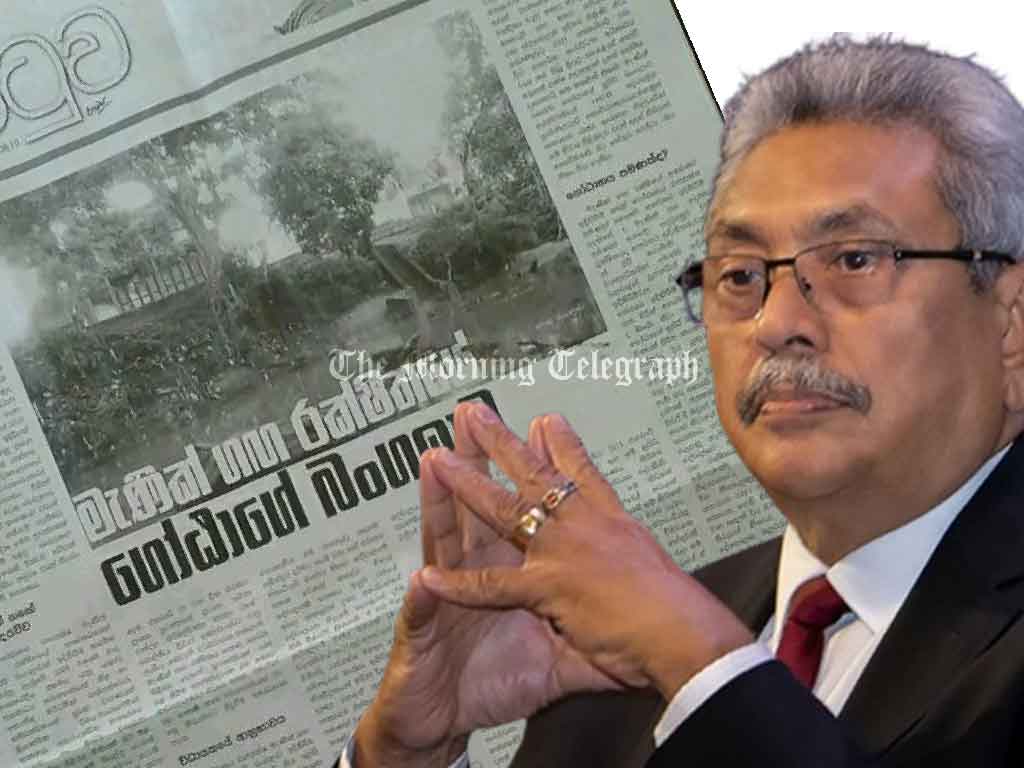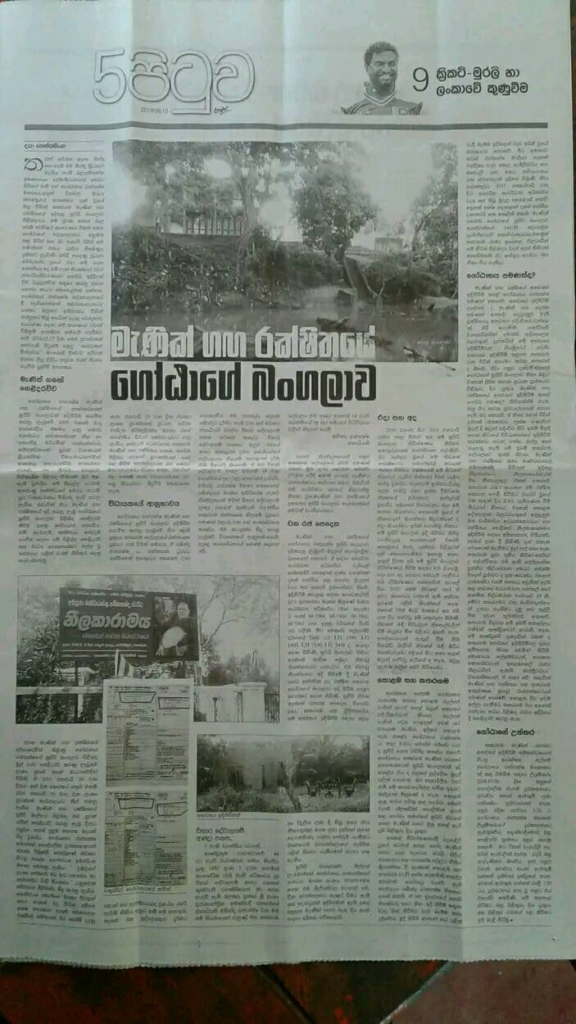
Former Sri Lankan President Gotabaya Rajapaksa appeared before the Criminal Investigation Department (CID) yesterday to provide a statement regarding an investigation into a controversial land acquisition in the Kataragama Menik Ganga Reserve. The case, which has sparked renewed public interest, involves allegations of illegal land use and construction on state-protected property during Rajapaksa’s tenure as Defense Secretary. His nephew, Yoshitha Rajapaksa, had also been summoned earlier for questioning in connection with the case.
After a two-hour session at the CID, Rajapaksa’s legal counsel addressed the media, asserting that the former president had no connection to the allegations. The lawyer stated that Rajapaksa was not in Sri Lanka during the time the alleged incident occurred. Despite these claims, the investigation has reignited a scandal that dates back more than a decade.
The origins of this case trace back to 2010 when the Lanka newspaper published an investigative report alleging that Gotabaya Rajapaksa was linked to the illegal acquisition of land in the Kataragama Reserve. The report detailed the construction of a building on the land using government resources and provided supporting evidence, including water supply bills, to substantiate the claims.
At the time, Mahinda Rajapaksa was President, and Gotabaya Rajapaksa was the Defense Secretary. The allegations led to a severe crackdown on the Lanka newspaper. The CID raided the publication’s offices, interrogated journalists, and arrested editor-in-chief Chandana Sirimalwatte. The newspaper was banned, and Sirimalwatte was detained for 18 days.
Journalist Shalika Wimalasena recently recounted the events, describing how the government used its machinery to suppress dissent and silence critical voices. The Lanka newspaper’s staff faced intimidation and harassment, yet they continued to advocate for transparency and accountability.
The CID has now reopened the case, with statements recorded from key individuals, including Neville Wanniarachchi, the former Chief of Security to the President, on December 27, Yoshitha Rajapaksa on January 3, and Gotabaya Rajapaksa on January 17. These developments have intensified public scrutiny, particularly as Gotabaya Rajapaksa continues to deny any involvement.
The investigation aims to determine whether state resources were misappropriated to facilitate the acquisition and development of the land. Critics have highlighted the importance of resolving the case promptly to ensure justice and accountability.
The allegations claim that the Kataragama land was part of a state-protected reserve and that its illegal acquisition involved the misuse of government funds and resources. The 2010 Lanka article suggested that Gotabaya Rajapaksa played a significant role in this scheme, which allegedly benefited from the complicity of high-ranking officials.
The CID is also investigating whether former President Mahinda Rajapaksa’s administration enabled the suppression of evidence and obstructed justice in the case. While Gotabaya Rajapaksa has maintained his innocence, public calls for a thorough and transparent inquiry continue to grow.
The investigation has reignited debates about corruption and accountability in Sri Lanka. Critics argue that high-profile cases involving powerful individuals often stall or are mishandled, eroding public trust in the justice system. The Kataragama land case is being viewed as a litmus test for the government’s commitment to fighting corruption.
Political commentators have also drawn parallels between this case and previous controversies involving the Rajapaksa family, including allegations of financial misconduct and misuse of state resources. Many believe that resolving this case could set a precedent for addressing other unresolved allegations.
As public pressure mounts, there are calls for the CID to expedite the investigation and bring it to a conclusive end. Observers warn that delays could lead to further disillusionment among citizens, who expect accountability from their leaders.
The Kataragama land controversy highlights the complexities of addressing corruption allegations involving powerful political figures in Sri Lanka. The outcome of this investigation will likely have significant implications for the country’s political and judicial landscape.





